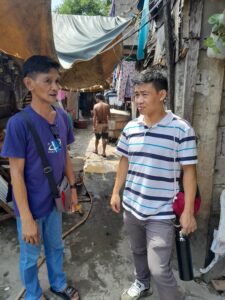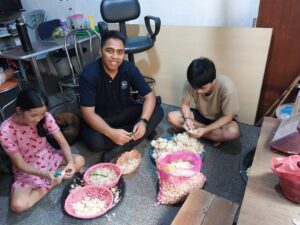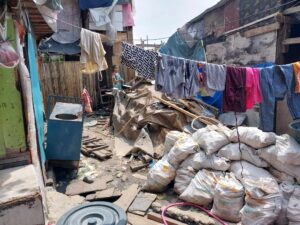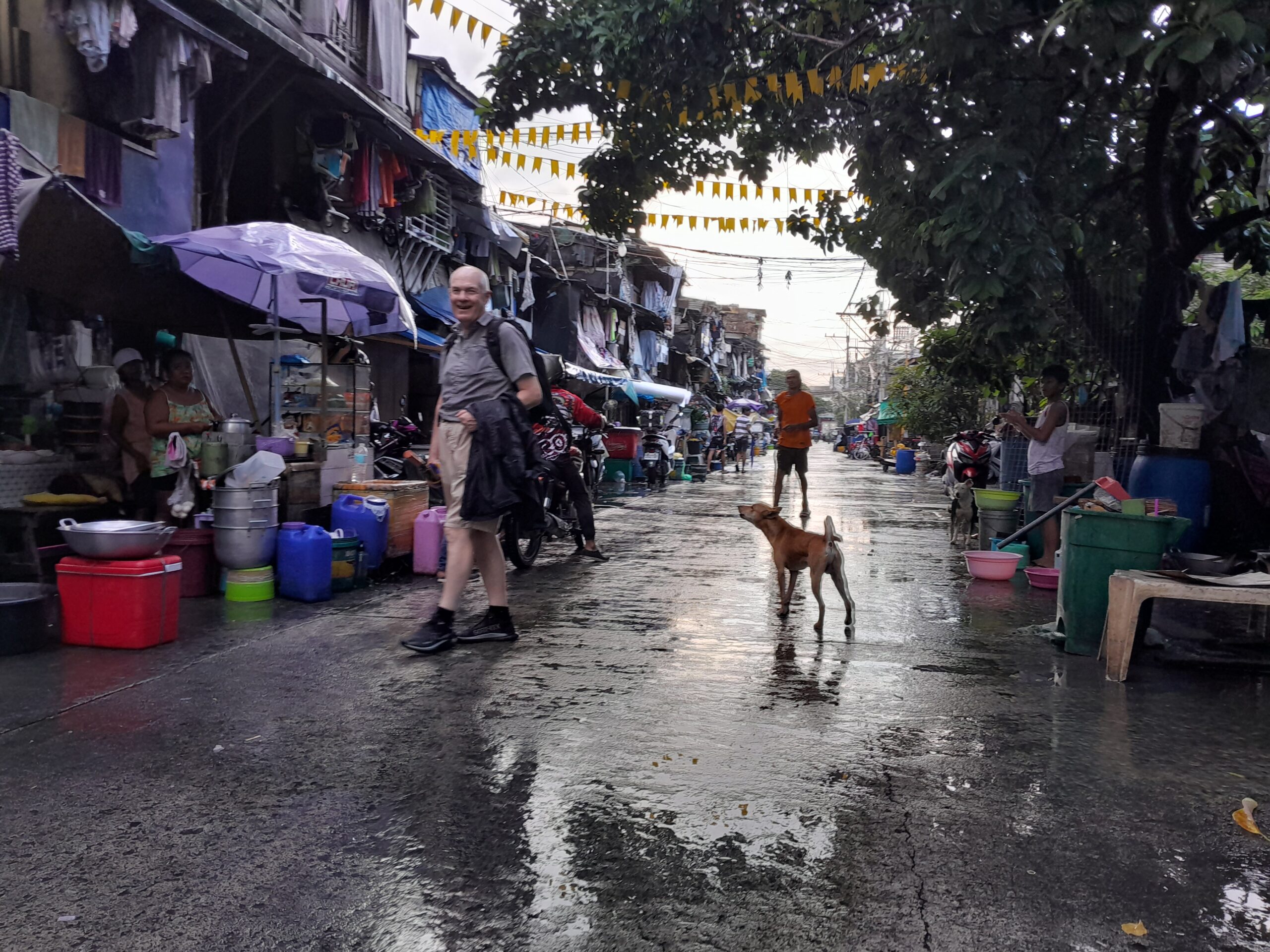Fr John Boles speaks to Lydio Mangao Jr about how Columban seminarians are bringing hope to one of Manila’s most notorious slums.
“This’ll be a real eye-opener”, Lydio told me, and he wasn’t joking. Lydio Mangao Jr is a Columban seminarian from the Philippines. He lives in our House of Studies in Manila and attends the Loyola School of Theology. On my recent visit to our missions in the Philippines Lydio invited me to accompany him on one of his regular visits to the slum area of Parola in the capital Manila.
I’ve seen a lot of slums in my time, and I’d seen a lot of slums in the Philippines, but nothing, absolutely nothing, had prepared me for what met me in Parola.
In the local language, ‘parola’ translates as ‘lighthouse’ or ‘beacon’. Metaphorically, it means ‘beacon of hope’, a cruel irony when you see the place. It occupies a patch of swampland, squeezed between the docks which line Manila Bay. For years it has been a magnet for homeless squatters, and now some 75,000 people are crammed into an area measuring no more than ten acres.
They live piled on top of one another – literally, for with space at a premium, the only way to accommodate more residents is to build upwards. Many of the multi-storey shacks perch precariously on flimsy stilts, affording some protection from the twice-daily tidal flooding.

Columban seminarian, Peter Zau Mai from Myanmar (right), speaking with a local catechist in Parola.
Parola is sited close to the mouth of the River Pasig, which wends its way through Metro Manila before dumping the detritus of 15 million people into Manila Bay. Much of this rubbish gets washed up into Parola itself. Believe it or not, for many of the local inhabitants, this is a blessing in disguise. They can scratch a living by foraging amongst the garbage for articles which can be collected and sold at a pittance for recycling.
People try to make ends meet by hustling around the port for casual jobs, and by working in town as street-sellers, road sweepers, tricycle drivers or market vendors. A favourite ‘cottage industry’ is the peeling of garlic on behalf of city restaurants. “A family can peel a sack of garlic a day”, Lydio told me. A sack of peeled garlic sells at about $2.
Parola has become a hotbed of petty crime, especially drug related. Many of the menfolk sport gang membership marks in the form of tattoos, often applied in Manila City Jail, close to Parola. During the tenure of hard-line President Rodrigo Duterte, plainclothes police were given free rein to patrol areas such as Parola and “take out” suspected drug dealers.
Operating with complete immunity, these death squads were not too discriminating in their choice of victims, and each morning bodies of young men were found scattered around the edges of the neighbourhood.

Matang Moeniba, a Columban seminarian from Kiribati, helping a family peel garlic.
The present government has discontinued this policy. Nevertheless, Lydio told me how the squatters are still understandably nervous about the presence of strangers. “When you’re roaming around they could mistake you for ‘intelligence officers’. Once, I had a rolled-up umbrella, and the people from the parish said I had to open it to show it wasn’t a gun in disguise”. He described another consequence of the ever-present atmosphere of violence.
“Parents are very protective of their children, they don’t always like them even going from one part of the settlement to another. I remember how a father sent his son to a neighbouring sector just to buy vegetable oil, and the boy got badly beaten up.”
The Catholic Church is a rare point of refuge in the midst of this mayhem. Lydio and his fellow Columban seminarians come here on their free days to help with the parish youth ministry. “We try to promote interpersonal activities”, explained Lydio.
“We get the kids talking, we pray with them, we visit their families and try and team up with their parents. The aim is to accompany the youngsters, build up their self-esteem, boost their knowledge of God, and give them a sense of community. It’s incredible to see what they can do when they get a bit of confidence. Some are really talented.”
The students help the parish in other ways as well. One role which caught my attention was that of blessing the dead. Death is a frequent occurrence here, but regular funerals are rare, so a simple blessing on the part of a parish worker usually suffices.

Alley scene in Parola.
For Lydio, Columban mission is in his blood. He is from the island of Negros and son of Lydio Mangao ‘Senior’, who was a catechist in the 1970s with legendary Columban human rights activist Fr Brian Gore. Lydio Sr and Brian were famously imprisoned by dictator Ferdinand Marcos as part of the ‘Negros Nine’, a case which reverberated around the world and helped speed the collapse of the dictatorship. In a strange twist of fate, Marcos’s son Ferdinand ‘Bongbong’ Marcos is the current president of the Philippines.
“This Columban heritage inspired me, especially all the emphasis on non-violence. Fr Brian helped me with my college degree course in psychology. My dad carried on working as a parish justice and peace ‘animator’ until he retired.” Now aged 29, Lydio Jr feels obligated to carry the baton, to continue the family tradition. The satisfaction he gets from pastoral service in Parola reaffirms his decision.
“At the end of last semester we’d been praying the Scriptures and a girl came up and said, ‘older brother, thanks for coming. Now I know that prayer is friendship with God.’ That made me think that maybe we are doing something right, bringing a little hope here.”
Columban Fr John Boles formerly served as a missionary in Peru and is now Regional Director in Britain.
If you would like to support our work in Manila’s slums, please send your donation to the Far East Office, Dalgan Park, Navan, Co Meath C15 AY2Y. Alternatively, you can donate online at www.columbans.ie or call 00353 46 909 8275.

